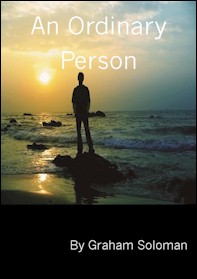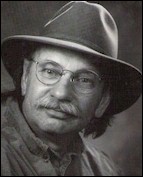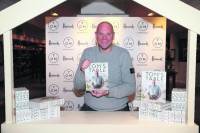How I got a literary agent - An interview with author Geri Spieler
firstwriter.com – Saturday September 23, 2006

Geri Spieler recently acquired an agent using firstwriter.com's database of literary agencies. We asked her about her writing, and how she found success.
fwn: Thank you for taking the time to talk to us, Geri. Tell us a little bit about your book. What's the title?
GS: The working title is I’m Sorry I Missed, Mr. President. The book is nonfiction and it is the story of Sara Jane Moore, the 45-year-old suburban doctor's wife who tried to assassinate President Gerald Ford in 1975.
fwn: What was it about her story that made you want to write about it?
GS: I met Sara Jane 30 years ago when I was a freelance reporter and I had a story published in the Los Angeles Times about a class action suit against the women’s jail. Sara Jane read it while still in custody before her hearing. She wrote to me at the paper and asked to meet. I was curious about her, even though I was not reporting on her. We kept in touch informally all these years. Finally I decided to write about her, and I had the time.
fwn: So you already had a history or writing professionally?
GS: I’ve been writing for many years. I was in some writing workshops in college, and then I became a journalist after college. I’ve written for the Los Angeles Times and San Francisco Chronicle. I also was a professional researcher. On and off I’ve done a lot of magazine freelance writing.
fwn: And do you think being previously published helped you in securing your literary agent?
GS: I think it is critically important. Agents want to know that you have a proven track record.
fwn: So once you'd decided to write this book, what did you use as your starting point?
GS: I had 30 years of letters and communication. But I didn’t know all about her life. I began by looking up all the newspaper articles written about her event. I wrote down every name in every story associated with her case, and names of friends, family, FBI, Secret Service, SF Police, all her associations.
I used an online people-search tool to find the folks I wanted to interview. It took me six months to research the book. I ran into a lot of problems in that some of the key people had died. Also, some people would not talk to me.
fwn: When you'd finished the book, what was the first thing you did to try and get it published? Did you start trying to find a literary agent straight away?
GS: Yes. I am looking for an established publisher and I learned that most publishers would only consider agented books. So, I bought several books on how to write a nonfiction book proposal. I also joined a writing club to talk to other writers and get into a writing community.
fwn: Where did you find your leads for agents?
GS: There were two rounds of agent searching. The first time about a month. I went to the library and looked up agents that seemed to fit my book. I followed the comments on what these agents want for book queries.
I sent out 40 query letters and got 39 rejections. I had a new agent for a while, but the relationship did not work out after a while.
fwn: Really? What went wrong?
GS: I wouldn’t hear from them for weeks and weeks at a time. They didn’t seem to know where to send my book. After that relationship fell apart, I spent nine months rewriting the book. This time it took me about nine months to find a new agent.
fwn: Did you do anything differently the second time round?
GS: The first time I was looking for an agent I did multiple submissions at once. This time around I picked agents more slowly. I researched each agent on various writer websites that give writers information on whether the agent has had complaints, such as Predators and Editors.
I had a carefully crafted query letter that I used and edited based on the agent’s request for information. I was told never to send a full proposal, even if an agent says that is what they want. An editor told me to only send a query and let the agent ask for the proposal. Then you can mark your envelope “Requested Material” and it gets read faster.
fwn: Did you still receive a lot of rejections?
GS: Totally, I got about 75 rejections.
It was extremely frustrating and depressing. At times I wanted to give up and I did for a while. I put the book aside and began a new book. Then, I was frustrated that this book I worked so hard on was just gathering dust, so I signed on to your website and continued to try and find an agent, but I was very careful about choosing those I thought fit and I researched them as much as I could.
Usually rejections were just impersonal letters. A couple were rude.
fwn: What was it about firstwriter.com that particularly helped you find your agent?
I really liked two things: one, that I could create my own profile; and two, that you sent alerts by email and I did not have to remember to go to your site. That is how I found my agent. You basically placed her in my lap.
fwn: And why do you think you were successful in securing this particular agent?
GS: Couple of reasons: One, I looked carefully at the books she sold and saw a good fit for my book. It is very important to target agents that represent similar books. That is their specialty.
Another reason was that I was totally prepared for her. I had my query letter revised and refined to perfection. When she asked for my proposal, I had been working on it for months and had it also edited to perfection.
We seem to be a good match so far in that she is very, very present. I hear from her almost every day. I like that.
fwn: And are you more optimistic about this experience of having an agent than your previous experience?
GS: My feeling about having an agent, at least this time, is hopeful. I heard a good phrase that you may already have heard, but it is really true.
“It is not about having an agent, but the agent you have.”
So far, my new agent is very present. I hear from you sometimes once a day, and at a minimum every other day. She has laid out a clear roadmap to promote my book and shared that all with me.
fwn: What advice would you give to other writers seeking an agent?
GS: Be prepared. Have your work polished and ready. Be prepared to send a very clever, clean and brief cover or query letter.
Write a fully fleshed out, proper proposal that follows guidelines of one of the many books written about fiction or nonfiction book proposals. Be sure to include a thorough marketing plan.
Do your homework. Try and find an agent that represents the book you are writing. Conferences are the best places to find an agent. Have your 15-second tag line ready. By that, I mean "tell me what your book is about in 15 seconds and get my attention".
fwn: And what are your future plans?
GS: I already began writing another book when I decided to put my agented book aside. The book my agent is representing is nonfiction and I’ve started on a novel which is just brand new.
My agent is waiting until after Labour Day to submit my book to publishers because she said they are all on vacation and she does not want my book sitting on some desk waiting for them to return.
I don’t know what to expect right now. So far, my new agent seems very focused and assertive in her approach. I like the fact that she gives me work to do to sell the book. That is a good sign. She is paying attention to my project. I have no problem doing whatever it is she wants me to do to help sell the book, as long as it doesn’t change the basic project.
Packaging is important, and so far that is what we are doing. She did suggest making the last chapter stronger, and I agree with her. She is sharp – she spotted that immediately.
Everyone I know who sold a book said his or her agent was eagle-eyed from the beginning.
fwn: Thank you, Geri, and best of luck with everything.
To search firstwriter.com's database of over 650 literary agencies yourself, click here




 How I got a literary agent - An interview with author James R. Larson
How I got a literary agent - An interview with author James R. Larson How I got a literary agent - An interview with author, Charles Heaton Allen
How I got a literary agent - An interview with author, Charles Heaton Allen How I got a literary agent - An interview with author, Graham Soloman
How I got a literary agent - An interview with author, Graham Soloman How I got a literary agent - An interview with author, Robert W. Morgan
How I got a literary agent - An interview with author, Robert W. Morgan How I got a literary agent - An interview with author Rob Riley
How I got a literary agent - An interview with author Rob Riley How I got a literary agent - An interview with author Adrienne Schwartz
How I got a literary agent - An interview with author Adrienne Schwartz How I got a literary agent - An interview with author, Eric Houghton
How I got a literary agent - An interview with author, Eric Houghton How I got a literary agent - An interview with author David C. Burton
How I got a literary agent - An interview with author David C. Burton How I got a literary agent - An interview with author Frank Hotchkiss
How I got a literary agent - An interview with author Frank Hotchkiss Verse & Vision: Interview with Mark Gottlieb, Leading Literary Agent
Verse & Vision: Interview with Mark Gottlieb, Leading Literary Agent How I got a literary agent - An interview with Mary Kilgore
How I got a literary agent - An interview with Mary Kilgore So you want to be a novelist? A New York literary agent, editor and author reveal how bestsellers are born
So you want to be a novelist? A New York literary agent, editor and author reveal how bestsellers are born The first three steps to finding a literary agent
The first three steps to finding a literary agent Writers' Handbook 2025 now available to buy
Writers' Handbook 2025 now available to buy Alex Cochran joins Greyhound Literary
Alex Cochran joins Greyhound Literary South West publishing group seeking submissions
South West publishing group seeking submissions New Publisher Listing: Muswell Press
New Publisher Listing: Muswell Press Bloomsbury snaps up academic publisher in ‘game-changing’ acquisition
Bloomsbury snaps up academic publisher in ‘game-changing’ acquisition New Literary Agency Listing: Greenstone Literary
New Literary Agency Listing: Greenstone Literary English Department launches first literary magazine
English Department launches first literary magazine Giulia De Biase joins Andrew Nurnberg Associates, Milan
Giulia De Biase joins Andrew Nurnberg Associates, Milan New Literary Agency Listing: Creative Roots Studio
New Literary Agency Listing: Creative Roots Studio Royal Literary Fund’s hardship grants for writers see applications increase by 400%
Royal Literary Fund’s hardship grants for writers see applications increase by 400% Human Kinetics buys Lotus Publishing for undisclosed sum
Human Kinetics buys Lotus Publishing for undisclosed sum New Literary Agent Listing: Emily Barrett
New Literary Agent Listing: Emily Barrett Ed Wood leaves Sphere editorial to become agent at The Blair Partnership
Ed Wood leaves Sphere editorial to become agent at The Blair Partnership Mubi Moves into Book Publishing with Mubi Editions Imprint
Mubi Moves into Book Publishing with Mubi Editions Imprint
